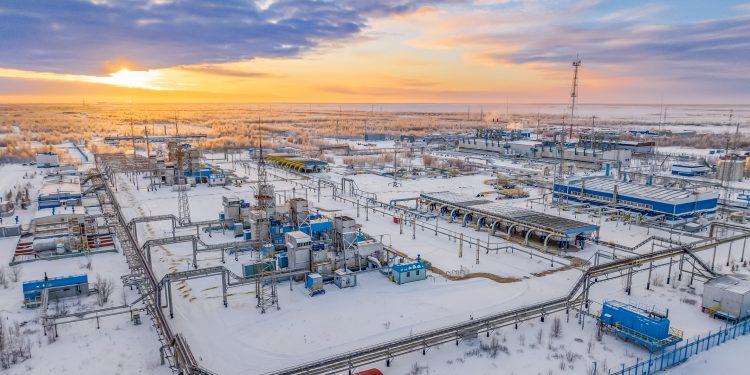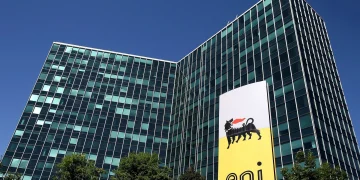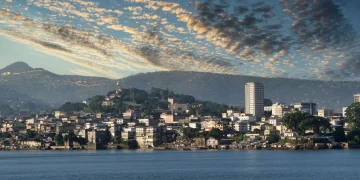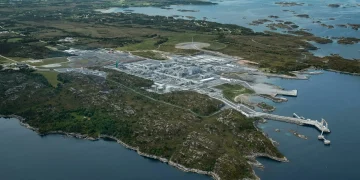Gas Production in the Russian Federation May Halve by 2040 Without Hard-to-Recover Reserves
Reserves, Including Offshore Fields, Gas Production in the Russian Federation May Decline by Nearly Half by 2040.
Recoverable gas reserves are being depleted, and without the development of hard-to-recover reserves, including offshore fields, gas production in the Russian Federation could decrease by nearly fifty percent by 2040. This data was presented by Oleg Fedoseev, Head of the Hydrocarbon Analytics and Monitoring Department at the State Reserves Commission (GKZ), during the 21st International Conference “Development of the Russian and CIS Shelf – 2025”.
Fedoseev noted that the current developed gas fields in the country will last for fifty-four years.
“After that, it will be necessary to involve not just undeveloped fields, but hard-to-recover reserves and offshore deposits. In the future, we must bring into development eleven trillion cubic meters of gas, of which half must be economically viable,” he added.
The GKZ representative also reminded that traditional reserves in the Nadym-Pur-Taz region of Yamalo-Nenets Autonomous Okrug are already seventy-five percent depleted.
“We estimate the share of hard-to-recover reserves in current reserves at fifty-four percent, of which twenty-three percent are offshore. Offshore development requires significant investment in technology development and extraction. To maintain production in Yamalo-Nenets Autonomous Okrug and supply gas to the Unified Gas Supply System, further exploration of unconventional reservoirs is necessary—these include the Achimov, Tyumen, and Pre-Jurassic formations. The share of low-pressure gas in the Senomanian layer will continue to grow. We have a joint project with Yamalo-Nenets Autonomous Okrug to involve these specific hard-to-recover reserves,” he said.
Fedoseev also recalled that Mineral Extraction Tax (MET) benefits for gas in the Russian Federation apply to subsoil plots where over seventy percent of reserves have been depleted, to deposits located at depths greater than 1,700 meters, and to fields on the Yamal and Gydan peninsulas, as well as to the Toulon and Berezov formations. The maximum MET benefit (100%) is applied to the continental shelf, to gas for liquefied natural gas (LNG) projects, and to gas used for injection into reservoirs for enhanced oil recovery (EOR).
“Recoverable reserves are being depleted, and we will be forced to develop hard-to-recover reserves or move into the offshore Arctic zone. But to do this, we must stimulate exploration and create new incentives for developing unconventional reserves and Arctic territories. We believe that the top priority should be conducting a full inventory of reserves, in order to understand how much gas we have, what volumes of production are required based on consumption balance: how much can be sold for export and how much is needed for domestic consumption, especially considering the ongoing active gasification of the country,” said the GKZ representative.







